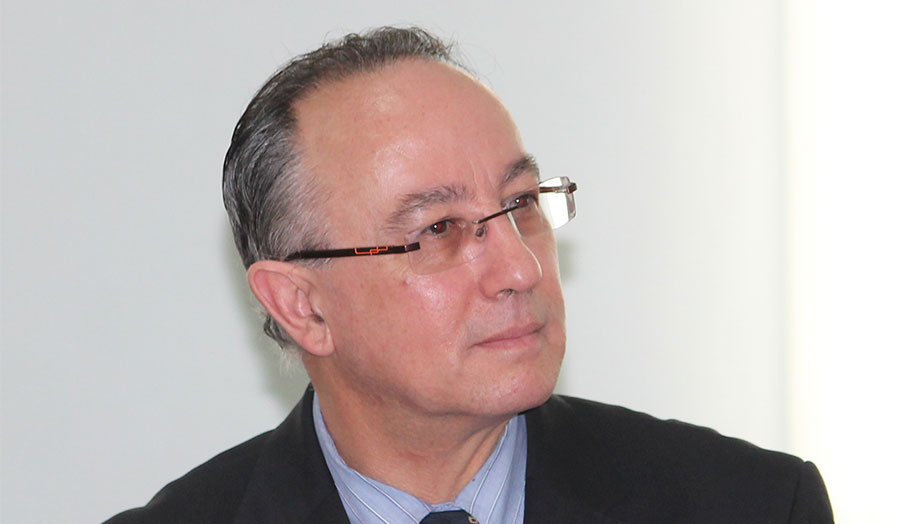Foreword by Emeritus Professor Digby Warren
Continuing our historic commitment to widening access to higher education, in 2020 London Met launched our distinctive Education for Social Justice Framework (ESJF), driven primarily by our belief that our curricula and practice should align with principles of equity, with who our students are, and the challenges facing London and its communities. In keeping with the University’s mission “to transform lives through the power of education”, our holistic, values-based ESJF builds on our rich tradition of inclusive practice and critical pedagogy in seeking to provide education that enables all our diverse students to gain knowledge and awareness, to develop their potential and to achieve success that empowers them in their careers and to become agents of progressive social change in the world. Integral to our social justice, equity and inclusivity agenda is our quest to eliminate differential outcomes between White and Black as well as minoritised students, particularly with respect to continuation and degree-awarding gaps, and ensure fair outcomes for all – refashioning our educational practice in partnership with our students.
Following a pilot phase (2020-21) and a university-wide training programme (2021-22) for fostering culture change and promoting and sharing good practice - it encompassed Valued-Added metrics, “Inclusive Behaviours” sessions on equity literacy and practice, and ESJ Pedagogy workshops covering all ESJF Dimensions - our ESJF is being implemented in all courses. During those years and 2022-23, course validations and periodic reviews, as well our Course Enhancement Process, have furnished opportunities to re/design our provision in alignment with the ESJF, while also disseminating striking examples of inclusive practice.
As a guide to enhancing practice, key principles for ESJ pedagogy, propagated via the training, include:
- strive, as teachers, to be ethical – showing care and respect for the dignity, autonomy and identity of students – empowering, authentic, reflexive and self-aware;
- create brave, egalitarian, dialogic, active learning spaces where all voices are heard and valued, and learning is co-constructed among students and teachers;
- incorporate students’ authentic experiences and “cultural wealth” via problem-posing and critical engagement with topics connected to students’ lives and interests;
- explore diverse perspectives, epistemologies and theorists/scholars, and how we position/are positioned as teachers and students;
- interrogate assumptions about different ethnicities or cultures conveyed in course content and held by teachers and students, and their implications for equality and social justice;
- develop assessment strategies which allow students to reflect on and demonstrate engagement with critical perspectives, in diverse ways, with creative opportunities.
Application of our ESJF has fed into course changes such as more inclusive content, learning materials and assessment, informed by student feedback or contributions to curricular or assessment design, or even co-investigation of the hidden curriculum.
Initial encouraging indications of the positive impact our ESJF combined with a range of related initiatives across the student journey – from improved pre-entry guidance and induction to enhanced academic and personal support and the embedding of career education in the curriculum – include the reduction in the ethnicity degree-awarding gap from 17% to 9%, and increased ratings on the National Student Satisfaction (NSS) survey, comparing 2023 with 2020 results: overall “positivity rate” of 82.8% vs previous overall satisfaction score of 80%, plus higher ratings for teaching (85.6% vs 83.1%), assessment and feedback (83.7% vs 76.4%) and academic support (85.2% vs 78.9%). All these particular NSS scores are above the sector average. More impressively, London Met is now ranked as one the best universities in the country for teaching quality (9th out of 129), student experience (10th) and social inclusion (in the top quarter), according to the Times Good University Guide 2024.
The transformative impact of implementing our ESJF is also reflected in the remarkable improvement achieved by London Met in gaining a silver award in the latest Teaching Excellence Framework (TEF) 2023 appraisal. The TEF judging panel evaluated the areas of teaching, assessment and feedback, learning environment, course content and student engagement as “outstanding”, and learning resources as “very high quality”.
A vivid flavour of this highly commended teaching is captured and celebrated in this compendium of noteworthy case studies of existing inclusive practice from a variety of academic disciplines, inspired by our ESJF. May these exemplars, in turn, serve as a catalyst and inspiration for further teaching innovation across subject areas, thereby generating fresh instances of successful practice as additional compendium contributions in the future.

